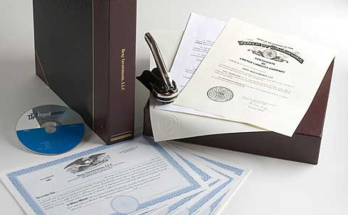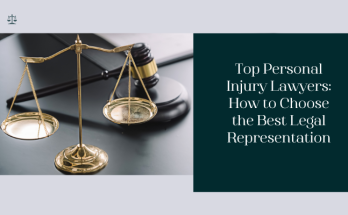Drunk driving charges can be a daunting experience, leaving individuals overwhelmed and uncertain about their future. Understanding DUI laws and the appropriate steps to take after being charged can significantly impact the outcome of the case. This article delves into the intricacies of DUI laws, providing a comprehensive guide on what to do when faced with such charges, how to protect your rights, and the importance of seeking professional legal counsel.
What Constitutes a DUI?
Driving under the influence (DUI) is a serious offense that occurs when an individual operates a vehicle while impaired by alcohol or other substances. Most jurisdictions define DUI based on the blood alcohol concentration (BAC) level. A BAC of 0.08% or higher typically constitutes a DUI for drivers over the age of 21. However, this limit can be lower for commercial drivers or minors. The legal ramifications for DUI charges vary by state, but they often include fines, license suspension, mandatory education programs, and possibly jail time.
Immediate Steps After a DUI Charge
Facing a DUI charge can be stressful, but taking the right actions immediately after the incident can make a significant difference in the outcome of your case. The following steps are crucial:
Stay Calm and Comply with Authorities
During a DUI stop or arrest, maintaining composure is essential. Cooperation with law enforcement can prevent the situation from escalating. Refusing to comply, resisting arrest, or acting aggressively could lead to additional charges and complications in your case.
Document Everything
After being charged, record every detail of the incident, including the time, location, interactions with law enforcement, and any tests administered. This information can be critical when building your defense. Even seemingly minor details can play a pivotal role in challenging the legality of the stop or the accuracy of the testing equipment used.
Avoid Self-Incrimination
It’s natural to feel the need to explain yourself during an arrest, but any statements made can be used against you later. It’s best to limit conversation and refrain from discussing your situation with anyone other than your attorney. Politely decline to answer any questions without legal counsel present, citing your right to remain silent.
Contact an Experienced DUI Attorney
One of the most important steps after being charged with DUI is securing legal representation. An experienced DUI attorney will help navigate the legal process, identify potential defenses, and advocate on your behalf. The consequences of a DUI conviction are serious, and professional legal counsel is essential to protect your rights and possibly reduce the severity of the penalties.
The Legal Process Following a DUI Charge
Understanding what to expect during the legal process after a DUI charge can help you prepare and make informed decisions. The process typically includes several stages:
Arraignment
The arraignment is the first formal court appearance after a DUI arrest. During this hearing, charges are read, and the defendant enters a plea. It’s crucial to have legal representation at this stage, as your attorney can negotiate bail, discuss plea options, and set the tone for the case moving forward.
Pre-Trial Motions and Hearings
Before the trial, there may be various motions and hearings. Your attorney might file motions to suppress evidence, challenge the legality of the traffic stop, or question the accuracy of the breathalyzer or other testing methods. These pre-trial actions are essential in shaping the defense and can lead to a dismissal of charges or reduced penalties.
The Trial
If the case proceeds to trial, both the prosecution and defense will present evidence and arguments. The prosecution must prove beyond a reasonable doubt that you were driving under the influence. Your attorney will challenge the evidence, cross-examine witnesses, and present your defense. A well-prepared attorney can often cast doubt on the prosecution’s case, which could result in a not guilty verdict.
Sentencing and Penalties
If convicted, the court will impose penalties based on the severity of the offense, prior convictions, and state laws. Common penalties include fines, community service, mandatory alcohol education programs, and license suspension. In some cases, especially for repeat offenders, jail time may be required. Your attorney can argue for reduced penalties or alternative sentencing options that may be less disruptive to your life.
Defenses Against DUI Charges
There are several defenses that an experienced DUI attorney might employ to challenge the charges. Some common defenses include:
Challenging the Traffic Stop
Law enforcement must have a valid reason to initiate a traffic stop. If the stop was made without probable cause or violated your rights, the evidence gathered during the stop may be inadmissible in court.
Questioning the Accuracy of Testing
Breathalyzers and field sobriety tests are not infallible. Equipment malfunctions, improper calibration, or operator error can all lead to inaccurate results. Your attorney can scrutinize the testing process to determine if there were any issues that could invalidate the results.
Rising Blood Alcohol Defense
Alcohol takes time to absorb into the bloodstream. In some cases, a person’s BAC may rise between the time of driving and the time of testing, meaning they were not legally impaired while driving. This defense can be particularly effective if there was a significant delay between being stopped and undergoing a breathalyzer test.
Medical Conditions or Dietary Factors
Certain medical conditions, such as diabetes or acid reflux, and specific diets can affect breathalyzer results. These conditions can produce falsely elevated BAC readings, providing a possible defense in your case.
Understanding DUI Laws: The Importance of Legal Representation
Navigating DUI laws without professional help can be overwhelming and risky. Legal representation is not only beneficial but often necessary to secure the best possible outcome. An attorney specializing in DUI cases understands the intricacies of the law, local court procedures, and the most effective defense strategies. By working closely with a knowledgeable attorney, you can ensure that your rights are protected and increase the likelihood of a favorable resolution.
FAQs
How long will a DUI stay on my record?
A DUI conviction can stay on your record for several years, often between five and ten years, depending on the state. This record can impact future employment, insurance rates, and other aspects of your life.
Can I refuse a breathalyzer test?
While you can refuse a breathalyzer test, doing so may result in immediate penalties, such as license suspension, and the refusal can be used as evidence against you in court. The consequences vary by state.
What should I do if I am wrongly accused of DUI?
If you believe you were wrongly accused, it is crucial to document all details of the incident and seek legal representation immediately. An attorney can help gather evidence and build a defense to challenge the charges.
Can a DUI charge be reduced to a lesser offense?
Yes, depending on the circumstances of the case and the skill of your attorney, a DUI charge can sometimes be reduced to a lesser offense, such as reckless driving, which carries less severe penalties.
Will I lose my license after a DUI?
License suspension is a common consequence of a DUI conviction. The duration of the suspension depends on the severity of the offense, previous convictions, and state laws. Your attorney may be able to negotiate a limited driving permit for essential activities.
How can a DUI affect my insurance?
A DUI conviction often leads to significantly higher insurance premiums. In some cases, your current insurer may drop your coverage altogether. It’s essential to shop around for insurance after a DUI to find the best possible rates.
Facing DUI charges is a serious matter, but by understanding the laws and taking the right steps, individuals can protect their rights and work towards the best possible outcome. Professional legal representation is key in navigating this challenging situation, ensuring that your case is handled with expertise and care.



